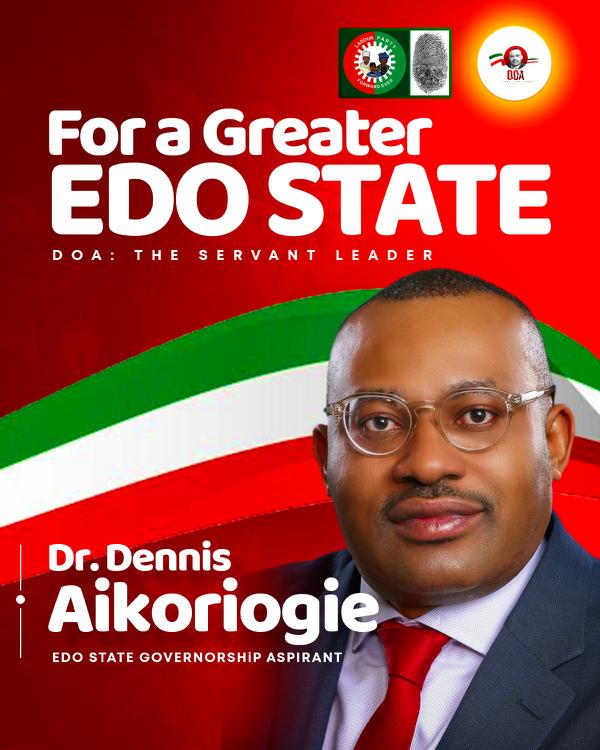As an economist, Dr. Dennis Aikoriogie is well aware of the political dynamics surrounding the removal of oil subsidy. He acknowledges that the same individuals who are currently involved in removing the subsidy were once vehemently against it back in 2012. This highlights the inherent politics that often overshadow the economic implications of such decisions.
The removal of oil subsidy in the present administration has resulted in a multitude of economic challenges, primarily due to the high cost of exchange rates. Without proper planning and effective palliative measures, the cost of living has surged, making life increasingly difficult for the citizens. The dearth of living wages further compounds the struggles faced by Nigerian workers, as they are unable to earn enough to sustain themselves. Additionally, the inefficiency of Nigeria’s refineries adds to the economic burden, with workers in the state-owned NNPC being paid despite their lack of productivity.
Dr. Dennis Aikoriogie emphasizes that the removal of subsidy should ideally attract foreign investors, leading to increased competition among fuel companies and subsequently driving down prices. However, in the absence of proper implementation and management, this intended benefit remains unrealized.
Additionally, the rising technical debt occasioned by the inefficiencies of Nigeria’s refineries make the country to depend on importation of PMS, This further adds to economic burden. Nigeria’s refineries are unable to produce enough petroleum products to meet domestic demand. This poses a significant challenge for the country, as it has to rely heavily on importing petroleum products, especially Premium Motor Spirit (PMS) or gasoline.
The dependence on imported PMS puts a strain on the country’s economy. Nigeria, being a major oil producer, should ideally have self-sufficiency in providing petroleum products for its citizens. However, the importation of PMS increases the country’s import bill, which further exacerbates the trade deficit and puts pressure on the already fragile foreign exchange reserves.
Furthermore, the continuous importation of PMS also leads to price fluctuations in the domestic market. Nigerian consumers often experience sudden increases in fuel prices, which directly affects their purchasing power and overall cost of living. This economic burden particularly impacts workers in Edo state, as it is one of the states heavily reliant on the oil industry.
When fuel prices rise, it leads to a ripple effect throughout the economy. The cost of transportation and goods increases, resulting in overall inflationary pressure. This puts an additional burden on workers in Edo state who are already facing challenges such as unemployment and low wages.
Dr. Dennis believes that the removal of subsidies alone may not be enough to attract foreign investors. Full deregulation of the downstream sector is crucial in order to create an environment of increased competition. This would encourage efficiency and innovation among existing companies, as well as attract new players to the market.
Increased competition is beneficial for both domestic and foreign investors. It drives companies to strive for better performance, leading to improved products and services.
Dr. Dennis emphasizes that for the removal of subsidies to be truly effective, the downstream sector must be fully deregulated. This would create a level playing field for all participants, ensuring fair competition and providing a favorable environment for foreign investors to enter and thrive in the petroleum market.
Dr. Dennis Osahon Aikoriogie recognizes the importance of creating a conducive environment for economic growth in the state. As part of his priorities, he will prioritize the ease of doing business, aiming to streamline bureaucratic processes and reduce red tape.
In order to attract companies to invest in industrializing the state, Dr. Dennis plans to grant tax incentives and holidays. This means that companies that make significant investments in the state, particularly during their initial stages of development, will receive tax benefits and exemptions for a certain period of time.
These tax incentives and holidays serve as an additional incentive for companies to invest in the state. By reducing their tax burden, companies can allocate more resources towards their operations and expansion plans, ultimately contributing to economic growth and job creation.
Dr. Dennis’s focus on creating a favorable business environment and providing tax incentives demonstrates his commitment to attracting investment and promoting industrialization in the state. These measures aim to encourage companies to choose the state as their investment destination, leading to increased economic activity and prosperity for the region.
It is imperative that Dr. Dennis Osahon Aikoriogie is given the opportunity to become the next governor, as he possesses the necessary knowledge and experience to make Edo State economically viable and prosperous.

